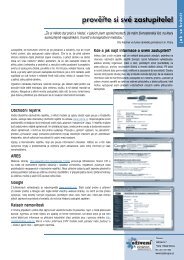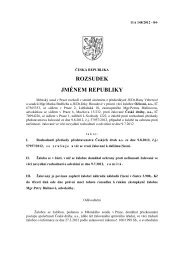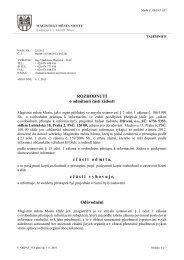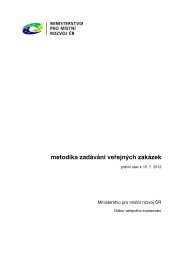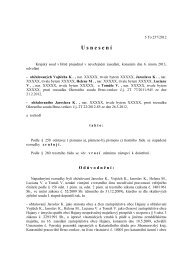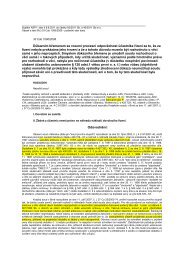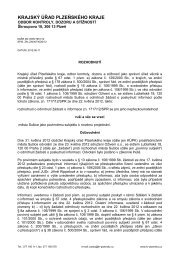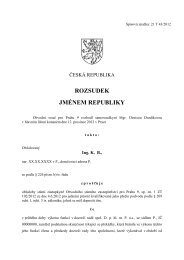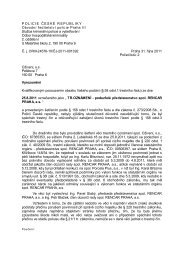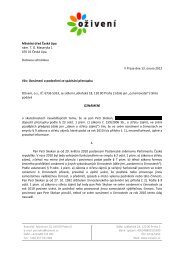Managing Conflict of Interest - Organisation for Economic Co ...
Managing Conflict of Interest - Organisation for Economic Co ...
Managing Conflict of Interest - Organisation for Economic Co ...
Create successful ePaper yourself
Turn your PDF publications into a flip-book with our unique Google optimized e-Paper software.
Defining <strong><strong>Co</strong>nflict</strong> <strong>of</strong> <strong>Interest</strong> 19A <strong>Co</strong>mparative PerspectiveGreat BritainFor most <strong>of</strong> Britain’s history, conflict <strong>of</strong> interest among rulers andtheir <strong>of</strong>ficials was endemic. Until the 18th century, no one expectedthe king or his courtiers not to take advantage <strong>of</strong> their position toenrich themselves. There were exceptions who served the Crownrelatively altruistically in the interests <strong>of</strong> the nation. A well-knownexample is Samuel Pepys, the diarist but also great re<strong>for</strong>mer <strong>of</strong> theNavy in the 1660s. But even he was not averse to using his positionto earn some money on the side through smuggling.In the early 1700s, the administrative apparatus was a mixture<strong>of</strong> the medieval and the modern. In some ministries, there wasgross nepotism, corruption, incompetence, and negligible salariessupplemented by handsome fees; in other ministries, civil servantsworked long hours, were reasonably honest, and were reasonablypaid. Gradually, the honest pr<strong>of</strong>essionals supplanted the corruptand the incompetent, and the quality <strong>of</strong> administration across governmentimproved. Several factors contributed:• Recognition by the King’s ministers <strong>of</strong> the need <strong>for</strong> efficiencyin the collection <strong>of</strong> taxes if Britain was to be successful in itsincreasingly expensive <strong>for</strong>eign wars.• Growing strength <strong>of</strong> Parliament: After the “GloriousRevolution” <strong>of</strong> 1688 when King James ll lost his throne andWilliam <strong>of</strong> Orange was invited to take his place, the Parliament—thoughrepresenting only the nobility and the landedgentry—became much more powerful in relation to theKing and his ministers. It gained control over the collection<strong>of</strong> taxes, it gained control <strong>of</strong> the army, and it was reluctant todisburse moneys without good reason—and this reluctancein turn created a degree <strong>of</strong> accountability that acted as apowerful constraint on administrative malpractice.• Increased public awareness through the press and lobbyists:There was a growing band <strong>of</strong> lobbyists, and a flourishing press,which published in<strong>for</strong>mation on matters <strong>of</strong> state; together,they began to act as a check on secrecy and malfeasance.• Independent judiciary’s check on executive powers: Therewas an independent judiciary, which could en<strong>for</strong>ce limits onthe executive’s power and on its abuse.ADB/OECD Anti-<strong>Co</strong>rruption Initiative <strong>for</strong> Asia and the Pacific






